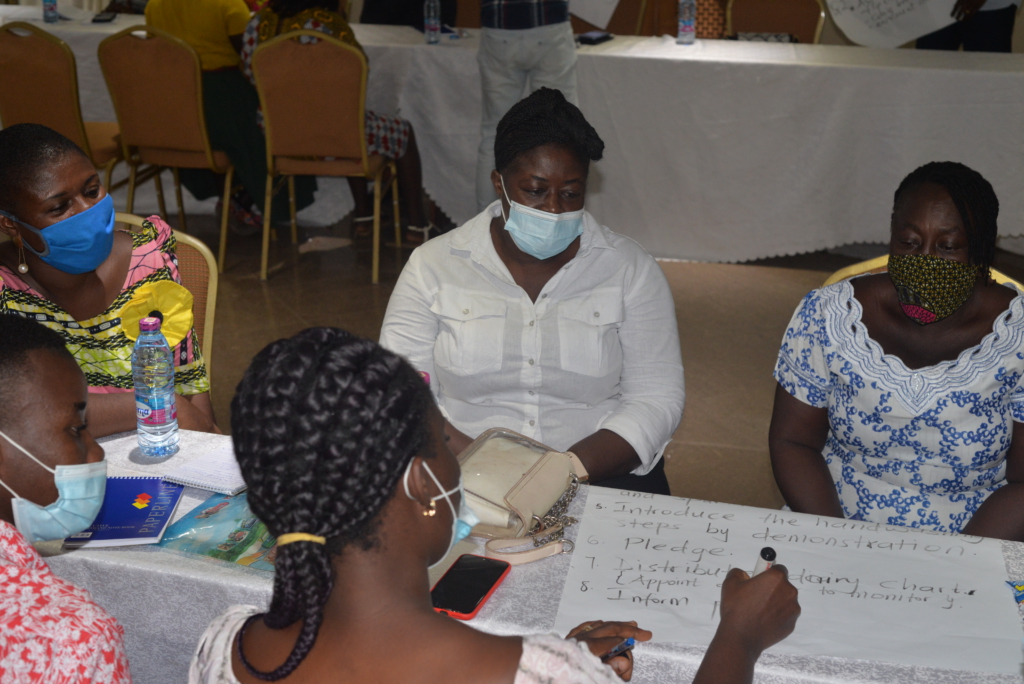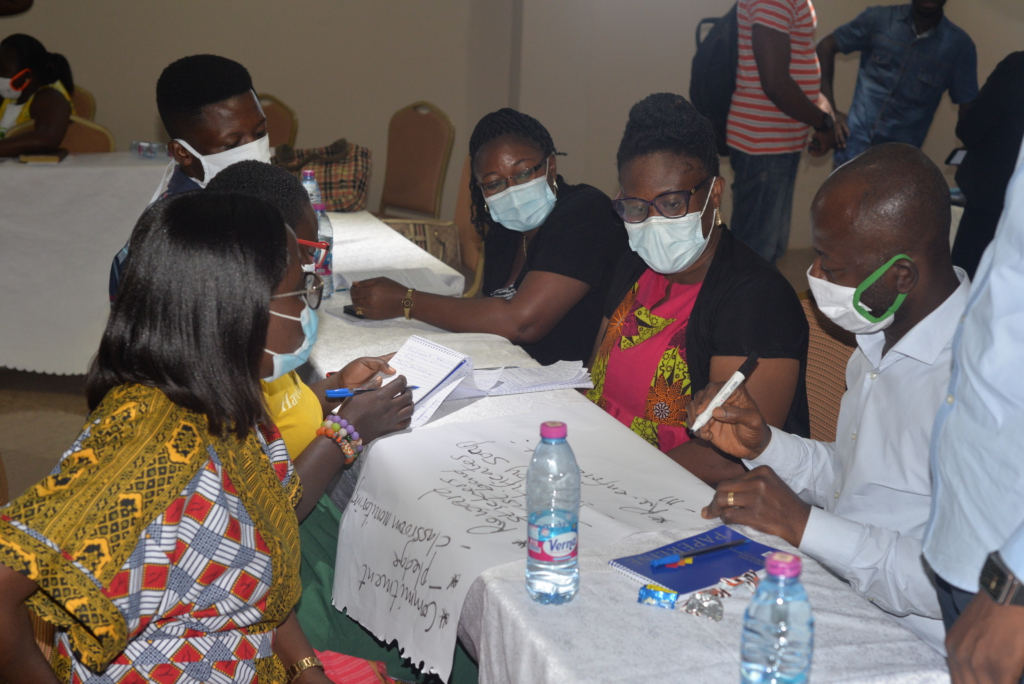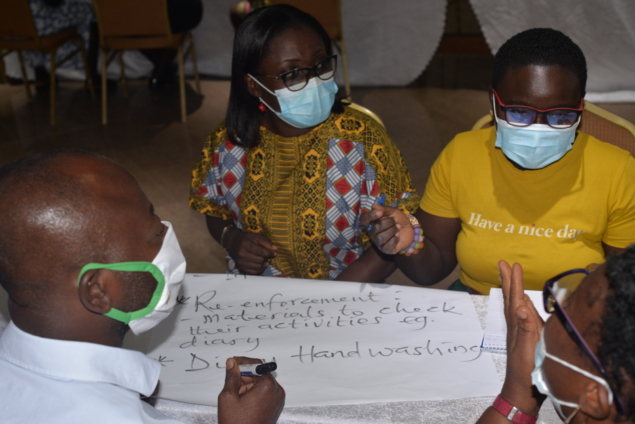Stakeholders of the Water and Sanitation for the Urban Poor’s project ‘Building urban resilience against Covid 19’ have benefitted from a 4-day capacity building workshop in Kumasi, Accra and Tamale.
Beneficiary stakeholders include School Hygiene and Education Programe (SHEP) coordinators, National Commission for Civic Education (NCCE) officials, market leaders, assembly members, environmental health officers and Community Based Organisations.
They were equipped with knowledge, skills and approaches in hygiene behaviour change approaches as well as general COVID-19, hygiene education and community engagement skills.
Participants engaged in plenary session to discuss effective ways to propagate the hygiene education messages, factors that motivate behaviour change and target practices. They were also trained on the Uniliver School of 5 Hygiene and Behavioural Change Approach and the Lifebuoy Mums Magic Hands Concept and its pillars for behavioural change which are awareness, commitment, reinforcement and reward.
The approach was to help the participants educate people to wash their hands with soap consistently at key occasions and actions to ensure families, especially children, wash their hands with soap consistently at key occasions in order to help reduce diarrhea related diseases.


Municipal director, NCCE Oforikrom, Vera Ofei believes the workshop has helped in improving her communication skills.
“NCCE is on the platform of education. We want to see behavioral change. This workshop has helped me acquire effective communication skills,” he said.
Oforikrom SHEP coordinator Millicent Annorbah-Sarpei said “the programme has come to help us practice good hygiene in schools and communities.”
Nana Esi Owusu Ansah of the Obuasi Central market queen was confident the wearing of nose masks is an effective method of curbing the spread of covid-19 in the market setting. She said “proper communication is crucial in education of her subjects.”
District environmental officer, Obuasi East, James Gamor has identified a change in his approach.
“What we’ve come to learn here will help us to improve what we’ve already been doing on the field. We’ve realized we need to change some of our strategies to prevent the new cases,” he said.
Stakeholders in Tamale and Accra also benefitted from the 4-day workshop to equip them undertake the same hygiene and its related COVID-19 messages.
The programme is supported by the Unilever and the UK government. WSUP in October organized an education campaign for traders, schools and the general public in some Assemblies in Greater Kumasi Metropolitan Area and Tamale to increase awareness and understanding about the importance of handwashing with soap as an effective and affordable way to prevent diseases and save lives.
Latest Stories
-
NPP Electoral Area Coordinators call for suspension of Kpando Constituency Executives
2 minutes -
Kpando MP, Sebastian Deh calls for collective efforts toward developing the constituency
11 minutes -
Musah Superior writes: We will hold Mahama to his campaign promises
16 minutes -
Ghana’s First Female Vice President: A Trailblazer in Leadership and Inspiration
32 minutes -
Mahama will appoint new MMDCEs in 14 days – Ashie Moore discloses
39 minutes -
Joe Biden says he could have defeated Donald Trump
44 minutes -
“This is Your Moment in History, My Dear Friend’s Wife” Part 3
45 minutes -
The Days of My Years Here on Earth: Three Score and Ten (Naabe @ Seventy)
1 hour -
Over 30 heads of states, prime ministers graced Mahama’s inauguration
2 hours -
Armah-Kofi Buah lauds Mahama on historic ascension to presidency
2 hours -
NDC supporters are safeguarding state properties, not looting them – Mustapha Gbande
2 hours -
NPP’s Akua Afriyie claims victory in Ablekuma North, vows to fight until the end
2 hours -
Unlocking Ghana’s Future: How Salt can drive Industrialisation, transform the Economy, and Empower Communities
2 hours -
Yagbonwura pays courtesy call on President Mahama
2 hours -
I will be decisive, swift in my actions – Mahama assures
2 hours

